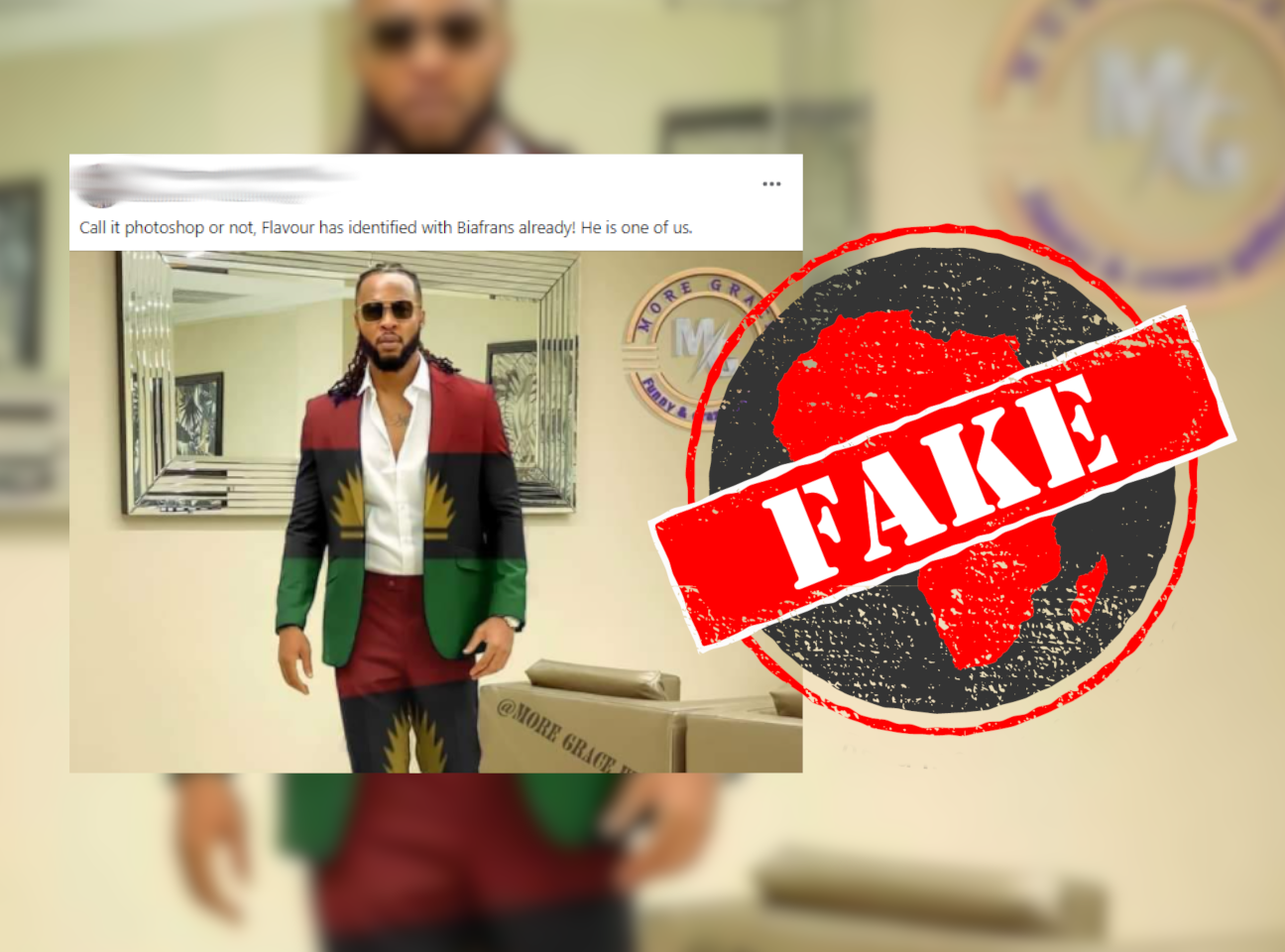An image of Nigerian musician Chinedu Okoli, popularly known as Flavour, was posted on Facebook on 11 December 2021 with the claim that he supports the movement for the restoration of the Republic of Biafra in southeast Nigeria.
The region seceded in 1967 to become the republic. But it was dissolved in 1970 after a 30-month civil war that left millions dead.
The image shows Flavour wearing a suit with the colours and design of the Biafran flag.
“Call it photoshop or not, Flavour has identified with Biafrans already! He is one of us,” the caption reads.
The post adds to a narrative about celebrities from southeast Nigeria wearing outfits designed like the Biafran flag.
In October 2021, Nigerian soldiers manhandled and detained popular Nollywood actor Chiwetalu Agu for wearing a flag-themed outfit.
Agu was accused of inciting the public and soliciting support for the banned Indigenous People of Biafra. The actor denied the allegation. He was detained by the Department of State Services for the charge.
Flavour is a native of the region, but does the image show him endorsing Biafra?

Plain blue suit
A Google reverse image search reveals that the image has been doctored.
We found the original photo in an April 2021 article on the celebrity gossip site Yabaleft. In the original, Flavour is wearing a plain blue suit, not the red, black and green of the Biafra flag. The photo has been used several times online to illustrate stories about the singer.
Republish our content for free
For publishers: what to do if your post is rated false
A fact-checker has rated your Facebook or Instagram post as “false”, “altered”, “partly false” or “missing context”. This could have serious consequences. What do you do?
Click on our guide for the steps you should follow.
Publishers guideAfrica Check teams up with Facebook
Africa Check is a partner in Meta's third-party fact-checking programme to help stop the spread of false information on social media.
The content we rate as “false” will be downgraded on Facebook and Instagram. This means fewer people will see it.
You can also help identify false information on Facebook. This guide explains how.


Add new comment